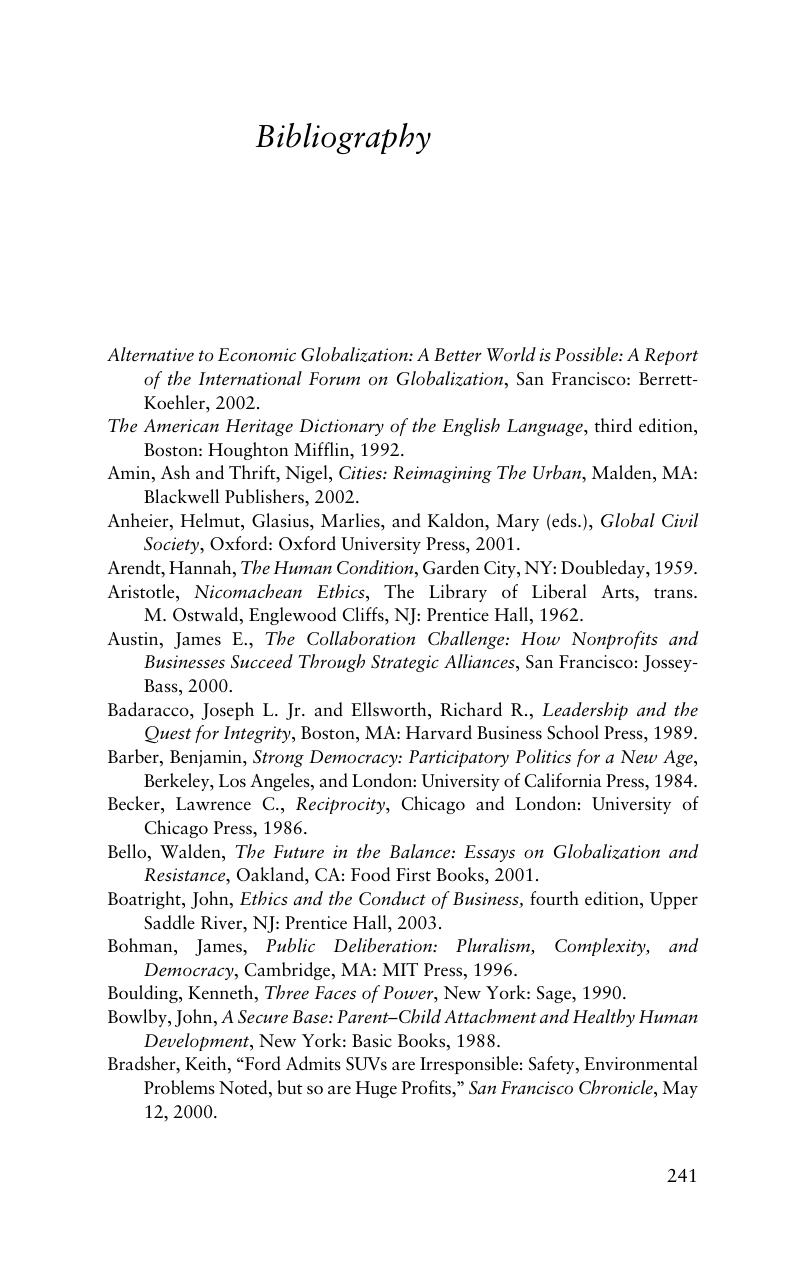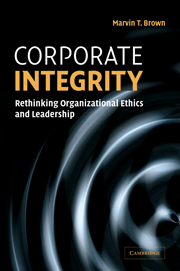Book contents
- Frontmatter
- Contents
- Preface
- 1 The context for corporate integrity
- 2 Cultural integrity as openness
- 3 Interpersonal integrity as relational wholeness
- 4 Organizational integrity as pursuing a worthwhile purpose
- 5 Social integrity as civic cooperation
- 6 Environmental integrity as natural prosperity
- 7 Corporate integrity and organizational leadership
- Appendix: Assessment worksheets
- Bibliography
- Index
- References
Bibliography
Published online by Cambridge University Press: 05 September 2012
- Frontmatter
- Contents
- Preface
- 1 The context for corporate integrity
- 2 Cultural integrity as openness
- 3 Interpersonal integrity as relational wholeness
- 4 Organizational integrity as pursuing a worthwhile purpose
- 5 Social integrity as civic cooperation
- 6 Environmental integrity as natural prosperity
- 7 Corporate integrity and organizational leadership
- Appendix: Assessment worksheets
- Bibliography
- Index
- References
Summary

- Type
- Chapter
- Information
- Corporate IntegrityRethinking Organizational Ethics and Leadership, pp. 241 - 250Publisher: Cambridge University PressPrint publication year: 2005



